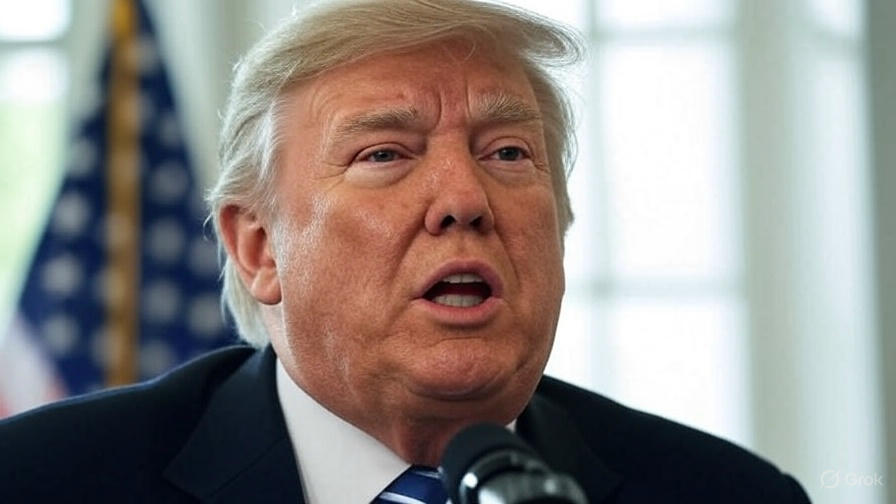Can you imagine if the government decided that your money had an expiration date? That the 100 euros you have in your account are only worth if you spend them before the end of the month. If you don’t, they disappear. What if you could only use them in certain stores or to buy “authorized” products?
It’s not science fiction, it’s a real possibility in the not-so-distant future thanks to CBDCs – the new digital currencies that the world’s central banks are beginning to design.
Let’s see exactly what they are and why they are generating so much controversy.
What are CBDCs?
CBDCs, or Central Bank Digital Currencies, are basically the digital version of the physical money we use every day, such as banknotes or coins. But with one crucial difference: they are issued directly by a country’s central bank, such as the European Central Bank, the U.S. Federal Reserve or the People’s Bank of China.
Unlike the money you have today in your bank account (which goes through commercial banks), CBDCs would be managed exclusively by the central bank, without intermediaries. In other words, a direct relationship between you and the state for your day-to-day finances. Sounds practical… until you start to see the possible uses behind the curtain.
Why are they being implemented (and why shouldn't they be)?
Governments say that CBDCs seek to modernize the economy, combat fraud, make transactions faster and safer, and ensure financial inclusion.
But here’s something that’s a little bit strange: we already have fast and efficient means such as Bizum, contactless cards, immediate transfers… even cryptocurrencies. So do we really need another option?
Many analysts agree that the underlying reason is not technical, but political: CBDCs would allow total control of individual financial transactions. In other words, the state could know exactly what, when and where you spend your money. And that completely changes the rules of the game.
Risks of CBDCs: your money could have an expiration date
This is where one of the most controversial aspects comes in: programmable money.
With a CBDC, the central bank could set rules on how you use your money. I have given you an example at the beginning of this content. In fact it is feasible and the risk that we have of them using this functionality is real…
This type of measure is not a conspiracy theory, it is already happening in different areas with spurious purposes such as reactivating specific sectors or forcing the reactivation of consumption.
In addition, with a CBDC, negative interest rates could be applied directly to your account: if the central bank decides to do so, your balance can be automatically reduced each month to “prevent you from accumulating money. Imagine your savings being reduced without you doing anything wrong. Is it fair? Is it ethical?

Real examples of control using CBDCs
These scenarios are already happening. Here are two real cases:
- China launched a pilot with its digital yuan, where the money received by citizens had to be spent within a specific period of time. It was not a suggestion: if they did not use it, it disappeared. This, in practice, turns the central bank into a kind of financial manager of your daily life.
- Nigeria, for its part, implemented e-Naira. The problem? Clear limitations on how much could be held and spent. The use of traditional cash was restricted and citizens were forced to operate digitally. Result: more state control and less individual freedom.
These cases show how CBDCs can become tools for directing economic behavior, rather than simply facilitating it.

Why did Trump put the brakes on CBDC in the U.S.?
Donald Trump has just put the brakes on the development of a CBDC in the U.S. The reason? He believes that these digital currencies could pose a direct risk to the privacy and financial freedom of citizens.
According to Trump, secure and fast methods of making digital payments already exist. Adding a layer of state control – with the ability to track and condition every transaction – is not only unnecessary, but dangerous. And while his stance has been controversial, it reflects a growing concern in American society: do we want a financial system where every expenditure can be monitored from above?
CBDCs and Artificial Intelligence: a disturbing combination?
It now takes this concept one step further.
Imagine that, in addition to the central bank, an artificial intelligence analyzes your financial habits in real time. Not only does it know what you buy, but it can also detect patterns, anticipate decisions and set limits automatically.
For example, an algorithm could decide that you cannot spend more than 10% of your salary on entertainment, or that you can only use your money in certain sectors according to the current economic policy. It’s like having a kind of “state economic advisor” that you can’t disobey.
Far from being a Black Mirror episode, this scenario is technically within reach. And it raises an essential question: to what extent are we willing to cede our autonomy to automated systems?
CBDCs at the Madrid Economic Forum

I had the opportunity to participate this week in this interesting economic event in which Marc Vidal, interviewed by José Antonio Viznez of Negocio TV, addressed precisely this topic.
I fully agree with Marc when he clearly differentiates between CBDCs and decentralized cryptocurrencies such as Bitcoin. Also when he warns of the risks involved in their implementation, especially in terms of privacy and state control over transactions .The latter derives most certainly in financial surveillance and restriction of individual freedoms.
Don’t be fooled, they will tell you that using the Euro CBDC is for your own good, for your security, to avoid I don’t know what nonsense… They are not necessary, we don’t need them and my position is that of total opposition to their implementation, since they are a de facto Trojan horse to keep us totally under control.
Just in case we start using cash again , since it is the only way to do (more or less) what we want with our money, in short, to be free. And please, let’s be absolutely critical with this frontal attack against our privacy…. there is still time.
Let’s remember what happened recently with the blackout in Spain. How many of you had problems buying basic things because you didn’t have cash? This is all nonsense!
What do you think about CBDCs? Would you use them? Do you still think cash is unimportant? Let me know in the comments. I’d love to hear from you.
Have a good week!
LINKS OF INTEREST:
China’s digital yuan is a warning to the world-Wired | Trump Calls Central Bank Digital Currency “Very Dangerous”-After Vowing To Prohibit Fed’s “Digital Dollar” | Nigeria’s eNaira CBDC: What Went Wrong?-Cornell University | China’s Digital Yuan Is All About Data-and, Perhaps, Control- Industru Week




